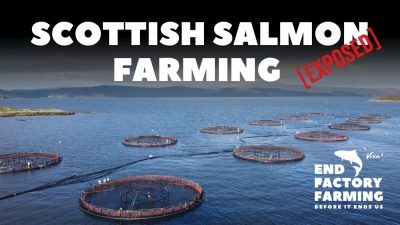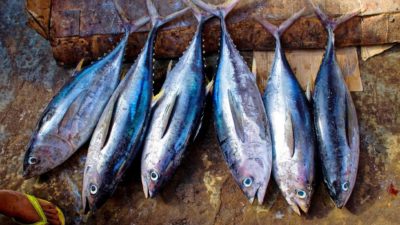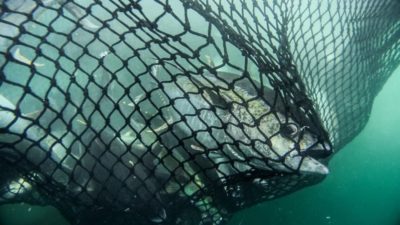The True Cost of Salmon Harming
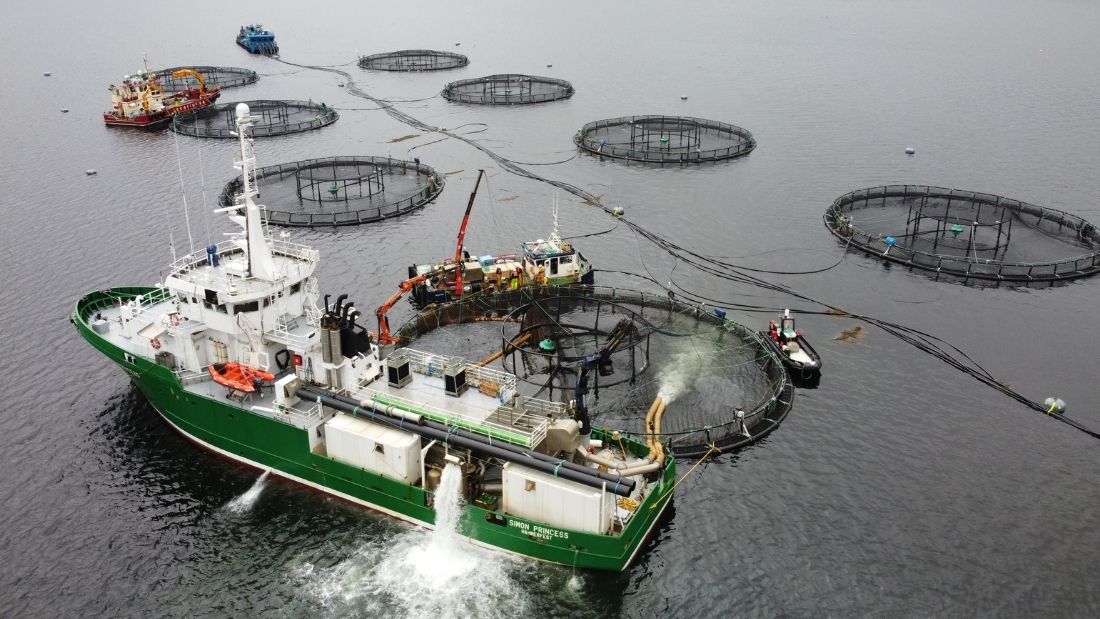
In a new report published this week, it was revealed that the Scottish salmon farming industry has accrued ‘hidden’ costs amounting to £3.3 billion since 2013 and is ‘wreaking ruin on marine ecosystems’, as a result of pollution, parasites, escapes and high fish mortality rates.
The report claimed fish mortalities at Scottish salmon farms have more than quadrupled, from three per cent in 2002 to about 13.5 per cent in 2019. Parasitic sea lice infestations are recorded as being responsible for roughly one fifth of the deaths but the real mortality is likely to be much higher, since two thirds of the total were unaccounted for.
Sea lice are naturally occurring parasites that reproduce rampantly, feeding on skin, mucus and blood. Whilst adult wild salmon are well adapted to coping with the odd sea louse, the intensification of salmon farming has led to fundamental changes in the density and occurrence of lice in coastal waters and the consequences are catastrophic.
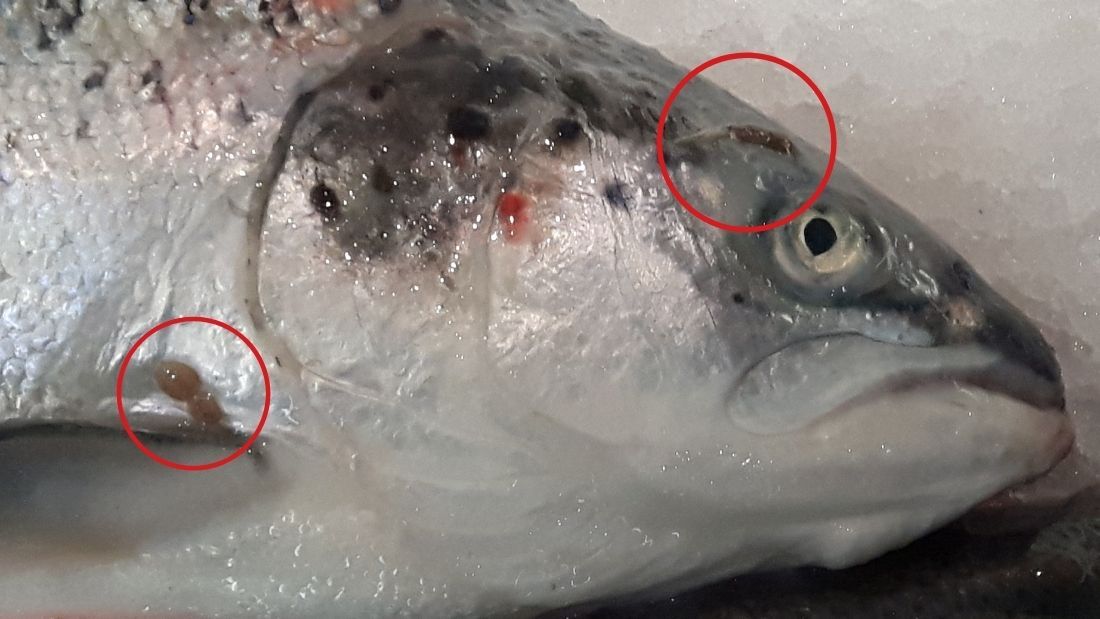
As well as causing skin lesions, loss of scales, secondary infection and ultimately death in infected fish, huge numbers of juvenile sea lice also escape to the local marine environment. This significantly impacts wild salmon and sea trout smolts, whose fragile skin is not yet adapted to coping with parasites on this level, and can be wiped out completely.
Scotland is the largest producer of Atlantic salmon in the EU and the third largest global producer, with an industry worth over £2 billion. Of the 250 Scottish farms, around 70 per cent are certified by the RSPCA Assured scheme – which would suggest that high welfare standards are implemented and well-monitored. However, that’s not the case.

Data from the Just Economics report indicated that in 2019 more than 13 per cent of Scottish farmed salmon died pre-slaughter – a ‘significant figure that is three times higher than mortality rates on UK chicken farms’. That is an outrageous loss of life and somewhat inconceivable to imagine in terms of individual fish, given that fish ‘stocks’ are generally referred to by weight.
The industry tends to believe that fish farming (known collectively as aquaculture with the farming of other marine animals) is the solution to overfishing and promotes farmed fish as ‘sustainable’, as well as ‘environmentally-friendly’. Yet between 2013 and 2019, the environmental costs of Scotland’s salmon farms were estimated at a staggering £1.2 billion.
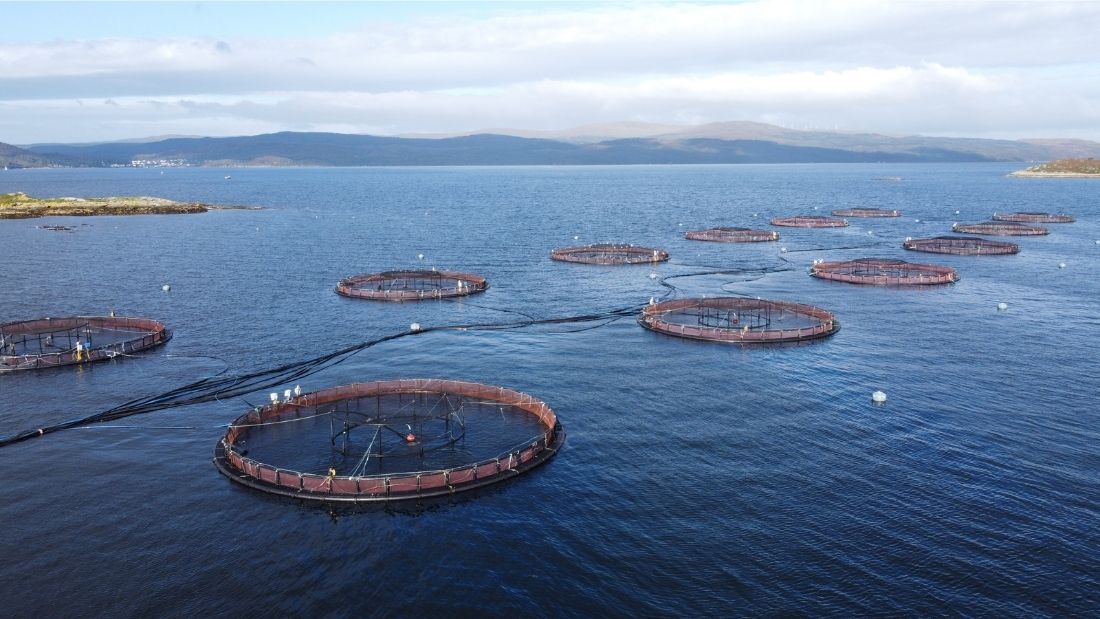
Like factory farms on land, intensive fish farms fail in providing environments that match the complexities of the animal’s natural habitat. With growing pressure to produce more and more fish for human consumption, locations for sea cages are increasingly exploited with high stocking densities and less suitable environments being considered.
Excessive uneaten feed and faeces discharged into the marine environment impact surrounding ecosystems and lead to a deterioration in water quality and nutrients for wild populations. The spread of lice and disease are also on the rise and mass escapes result in hybridised salmon with a reduced ability to survive in the wild.
The issue of aquaculture’s reliance on pelagic fish, in the form of fish meal and fish oil, to feed the ever-growing number of farmed fish is not one that can be ignored either. Of the world’s annual wild fish catch, almost one-fifth goes to feeding farmed fish, which is simply not sustainable whichever way you look at it.
Overall, the report makes for a damning read and salmon producers are right to be worried. With so many more plant-based fish alternatives on offer, it’s an exciting time to be vegan – for the fish, our living planet and vitally, your health!




